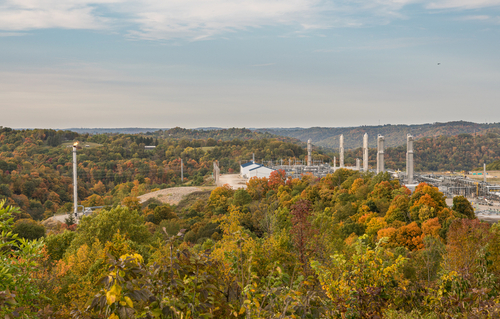
The Pennsylvania Senate Environmental Resources and Energy Committee on Wednesday approved several bills that stand to affect the state’s natural gas industry and the proposals now move to the full Senate for consideration.
“Each of these bills represent a thoughtful step toward strengthening Pennsylvania’s energy policy,” Committee Chairman Gene Yaw (R-23) said. “We’re advancing practical solutions that prioritize fairness, support investment, enhance grid reliability and promote energy independence.”
The committee approved Senate (SB) 102 and SB 712, both sponsored by Yaw and State Sen. Camera Bartolotta (R-46).
“These bills reflect our commitment to fairness, accountability and responsible resource stewardship,” Bartolotta said. “Senate Bill 102 ensures Impact Fee dollars go to the municipalities that allow and are directly impacted by natural gas development — communities where they are truly needed.
“Senate Bill 712 adds clarity and consistency to Pennsylvania’s well-plugging process, making our state more attractive for contractors and ensuring nearly $400 million in federal funds are used efficiently to address legacy wells,” she said.
Specifically, SB 102 would prohibit counties that ban natural gas development on public lands from receiving their share of Impact Fees and Marcellus Shale Legacy drilling funds. Impact Fee payments may be used for road and bridge repairs, housing, and other infrastructure needs.
“The Impact Fee was carefully constructed to compensate municipalities that hosted or were in proximity to natural gas development for any impacts they experienced,” said Bartolotta. “Impact Fee dollars were never intended to go to municipalities that prevent harnessing Pennsylvania’s natural resources for our benefit.”
Yaw pointed out that these dollars have been critical in supporting local economic development, infrastructure improvements, environmental projects and emergency preparedness and response efforts.
“So, when a county actively pursues drilling bans on public land, it seems reasonable to reinvest that money elsewhere,” he said.
Meanwhile, SB 712 would improve the abandoned and orphaned oil and gas well plugging process in Pennsylvania by clarifying what constitutes a reasonable effort in plugging to the attainable bottom, improving predictability and the use of orphaned well plugging funds, according to a bill summary provided by the lawmakers.
“The lack of current clarity has discouraged plugging companies from pursuing opportunities in Pennsylvania in favor of undertaking work in Ohio and West Virginia, which have more predictable processes for obtaining state agency approval,” Bartolotta said. “As Pennsylvania is in line to receive nearly $400 million in federal funds dedicated to plugging legacy wells, we need to take action now so funds are used as efficiently as possible.”
The Marcellus Shale Coalition endorsed SB 712 and yesterday cheered the committee’s advancement of the proposal.
“We very much appreciate Sen. Yaw and the committee advancing Senate Bill 712,” said Jim Welty, the coalition’s president. “This legislation will address current ambiguity that has frustrated operators looking to plug orphan and abandoned wells while helping to ensure that Pennsylvania receives its full share of federal well plugging funding.”
Also during its hearing, the committee advanced two other measures sponsored by Yaw: SB 704 and SB 682.
SB 704 aims to address electric generation shortfalls by directing state agencies to work together to identify suitable sites for natural gas projects; while SB 682 would change the name of Pennsylvania’s Department of Environmental Protection (DEP) to the Department of Environmental Services, a switch that Yaw says will shift the focus from enforcement to partnership.